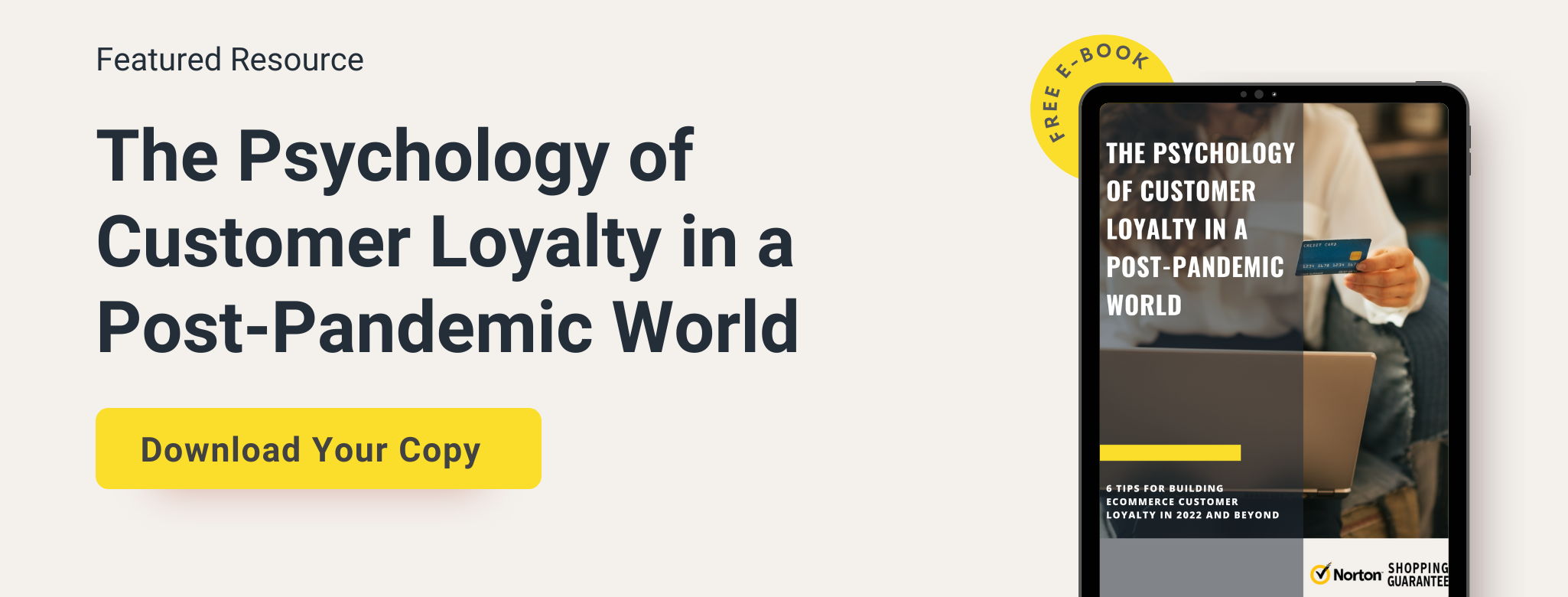

For the latest on ecommerce tips and best practices.
7 Ideas to Encourage Hesitant Shoppers to Buy

Online shoppers are overloaded now more than ever. Even with giants like Amazon around, customers still have many other ecommerce websites they can choose from. And as an ecommerce business in this competitive space, you may find it hard to make yourself stand out, or to convince a customer that you’re the right place to shop.
Shoppers are also increasingly worried that their credit card information could be stolen and have reasonable concerns about the security (and legitimacy) of online shops. Fortunately, though, there are a few ways you can help build confidence with your customers and give them the ultimate shopping experience.
With that said, we have some tips you can use to help convince those hesitant shoppers to make a purchase on your ecommerce site. We’ll discuss these seven ideas:
- Having multiple social platforms.
- Placing an identifiable trust badge on your site.
- Having easy-to-access contact information and live chat capabilities.
- Building a clear, easy checkout process.
- Placing testimonials on your website.
- Having a clear privacy policy.
- Having a good return policy.
1. A Social Business
Social platforms are all the rage, and if your business isn’t actively posting, you’re missing out on traffic. According to a 2016 study from Statista, 16% of shoppers said they purchased a product directly from a social media platform. Having your products available on different social media platforms opens your business up to a new world of customers and can greatly increase your conversion rate.
In the same study, 45% of shoppers said they use social media to read reviews, comments, and feedback on products, which can also encourage hesitant shoppers to convert if they see that others were satisfied with their purchases.
2. Building Trust
Placing a third party trustmark, like Norton Shopping Guarantee, on your site gives your customers confidence in their purchase. Today’s customers are especially cautious when shopping online, and for good reason—there are many opportunities to purchase items online from untrustworthy sources and get scammed.
Third parties can verify the legitimacy of an online store and provide added protections on purchases through a shopping guarantee service, providing peace of mind for shoppers.
3. Contact and Live Chat Capabilities
Being able to quickly answer a shopper’s question could be the difference between making or losing a sale. Sometimes, all a shopper needs is a little push in the right direction, and giving them good customer service and confidence in your business can be just that.
Live chat allows your shoppers to get answers within minutes, and without picking up the phone or waiting for an email response back. If you can’t have live chat, you need to at least answer shoppers’ questions within 24 hours to remain top of mind. Make sure your contact information is displayed prominently on your site and that it’s easy to access. That way, customers don’t get frustrated trying to look up your information and get their questions answered.
4. The Ultimate Checkout Process
If a shopper has doubts about their purchase, those will only grow the longer the checkout process takes. You want to be sure your checkout process is smooth, easy to understand, and fast. Some things that discourage shoppers during the checkout process include:
- Slow load times
- Excessive pop-ups
- Registration requirements
- Lack of trust built into the site
5. Testimonials
Customers trust other customers—it’s just fact. Most shoppers want to know how other shoppers feel after making a purchase, and positive reviews can greatly increase conversions if you provide them directly on your website (or social page). However, it’s not always easy to get previous shoppers to provide their feedback. Here are three tips we like to offer:
- Use social media to get quick reviews.
- Use quotes from customer emails (with their permission).
- Send surveys for previous shoppers to fill out.
6. Privacy Policy
Along with implementing a trust badge, having a clear privacy policy on your site shows customers that their safety is your top priority. Let them know how their information is being used and, most importantly, that you are keeping it safe. It’s best to keep technical and legal information at a minimum, especially any jargon that ordinary shoppers likely won’t understand. To make the writing more digestible, just give them only the most important and relevant information.
7. A Good Return Policy
While you hope that your shoppers love all of your products, there will be some who won’t. And if that ends up being the case, having a good return policy can help you retain those shoppers. After all, you want to show them that you believe in your products and that you’re going to do your best to make shoppers happy if they are not satisfied. This can mean providing a full refund within a certain time period, or simply giving them store credit.
This goes hand in hand with your customer service abilities as well—don’t let customers wait days or weeks to hear back about a return. Getting them their money or credit as soon as possible will increase the likelihood of them remaining a loyal customer.
Final Thoughts
Encouraging hesitant shoppers to make a purchase is key to increasing conversions. By proving to shoppers that your website is safe, has the customer service they want, and provides quality products, you’ll increase your loyal customer base. Getting new shoppers to convert is important, but keeping those customers coming back greatly increases your ROI.
Stay in the know
Subscribe to the Norton Shopping Guarantee blog and receive the latest in ecommerce best practices.



-1.png)
.png)